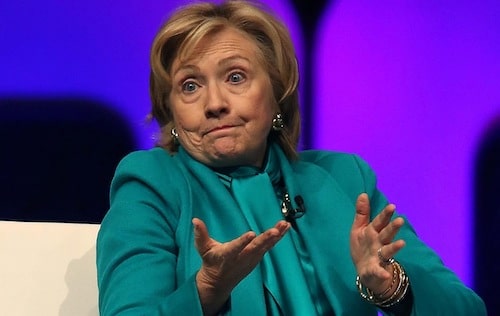
The Clinton Foundation has been the subject of long-standing allegations of questionable donations and reporting. It is also viewed by many critics as a massive shadow campaign structure that employed aides and funded Clinton trips. However, the most serious allegation was a type of pay-to-play scheme where foreign and domestic donors gave money in the hopes of currying favor or gaining access to the State Department.
Now, Judicial Watch has released dozens of emails that were deleted improperly by the Clinton staff, but contain non-personal communications. Among the recovered emails are communications showing interventions for donors at the State Department, including one on behalf of a convicted money launderer. The relative lack of coverage on both the proof of the improper deletion of such emails and the pay-for-play concerns is astonishing — and magnify concerns that mainstream media has been giving such controversies minimal coverage.
Clinton turned over 30,000 emails and repeatedly insisted that some 30,000 deleted emails were entirely and clearly personal in nature. That has been proven to be untrue. More importantly, the emails contain clear interventions for donors. Clinton just recently denied any such connection between the Foundation and State Department business.
However, in one email exchange, Doug Band, an executive at the Clinton Foundation, intervened for Gilbert Chagoury — a convicted money launderer — with the US ambassador to Lebanon. Band emphasizes that Chagoury is a “key guy there [Lebanon] and to us” and asks Clinton aide Huma Abedin call Ambassador Jeffrey Feltman on behalf of Chagoury. Chagoury was a major donor to both the Foundation and is a close friend of former President Bill Clinton. He also pledged $1 billion to the Clinton Global Initiative. He was convicted in 2000 in Switzerland for money laundering, but cut a deal to avoid jail time.
The Clinton campaign does not address the fact that this was one of many emails improperly deleted and only recovered through court orders. However, the campaign did insist that “Neither of these emails involve the Secretary or relate to the Foundation’s work. They are communications between her aides and the President’s personal aide, and indeed the recommendation was for one of the Secretary’s former staffers who was not employed by the Foundation.”
Another email showed the revolving door between the foundation and State with an effort by aides to find a position for a foundation associate. Clinton Foundation official Doug Band told Cheryl Mills and Huma Abedin that it is “important to take care of (redacted).” Abedin then assured Band that “Personnel has been sending him options.”
Also deleted was an email from Clinton’s chief of staff, Cheryl Mills, on the effort of the National Security Agency and State Department officials to develop a modified blackberry for Clinton that might be used when she worked in a restricted State Department office that did not allow private phones. It was clearly a government-related email and one that bore directly on what the FBI Director later found to be careless handling of classified communications by Clinton and her aides.
It is hard to see how the Clinton aides could have read these emails and deleted them as purely personal matters. One would think that such clearly improper deletions would generate more media scrutiny of tens of thousands of emails unilaterally deleted by the Clinton staff.
Reprinted with permission from JonathanTurley.org.

